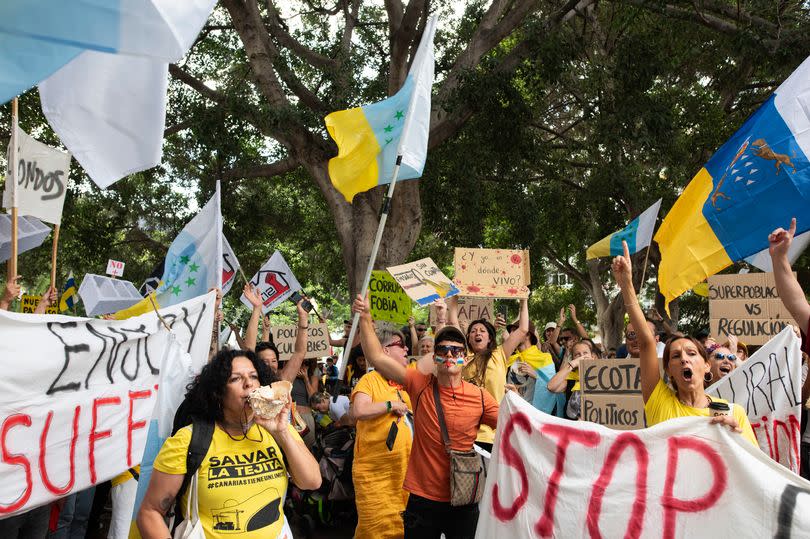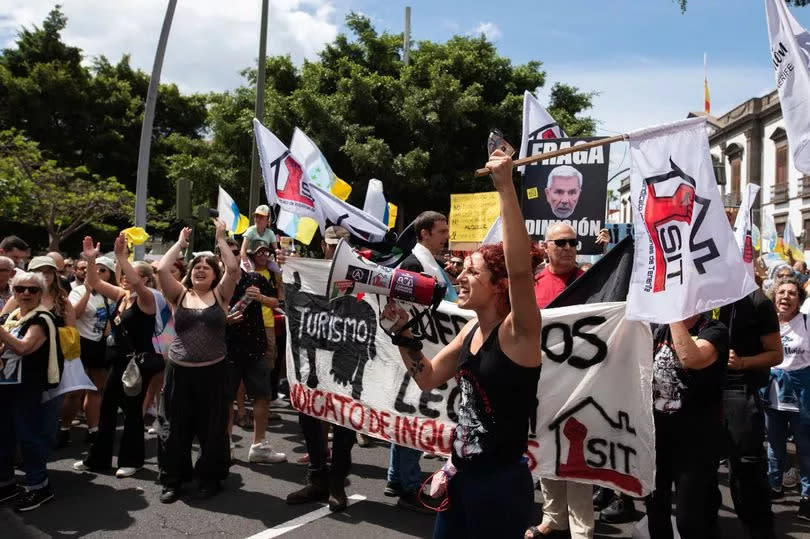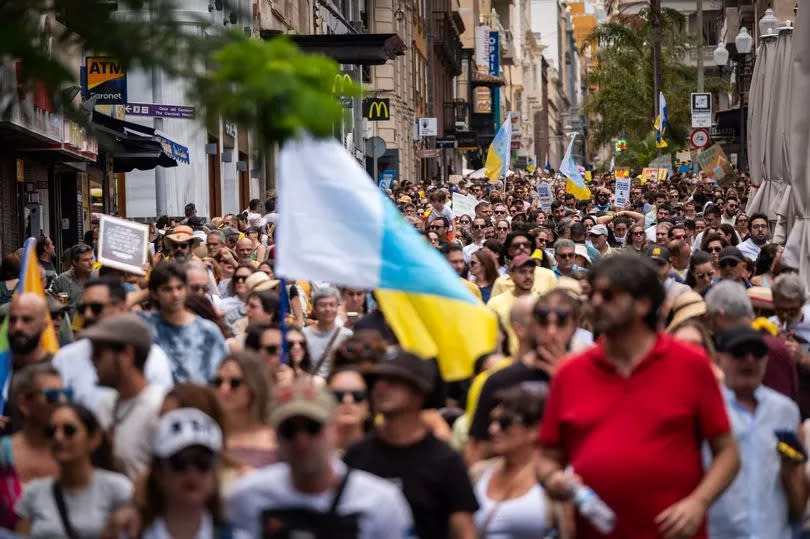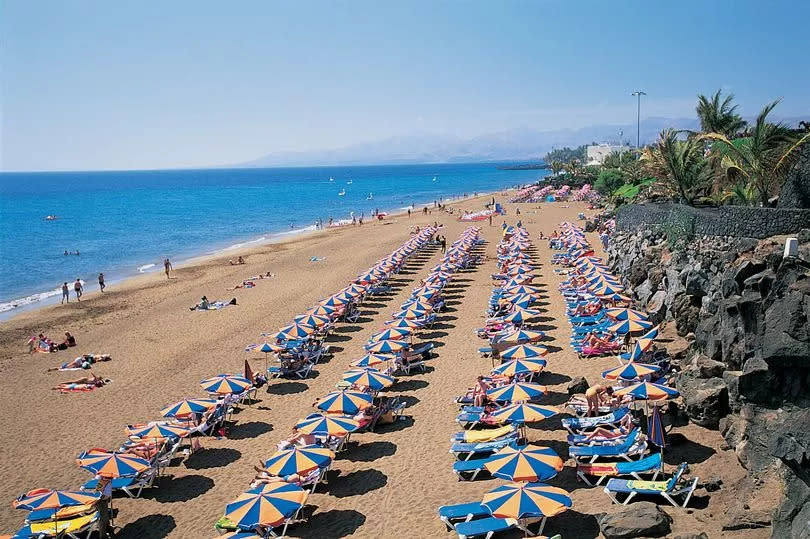Why are there protests in the Canary Islands and what does it mean for Brits?

A longstanding holiday destination among Brits, the Canary Islands have now come under the spotlight in recent weeks due to a backlash from locals against mass tourism. Protests have been held as locals call for changes to the tourism model, sparked by concerns that it's damaging local infrastructure and the environment.
The Spanish archipelago includes holiday hotspots Tenerife and Lanzarote, firm favourites among UK holidaymakers. Visitors are drawn by the islands’ sunny weather, beautiful beaches and natural beauty.
But tourism is causing tension on the islands. In 2023 13.9million tourists visited the Canaries, significantly outnumbering the local population of 2.2million. The Canary Island government previously announced that it was launching a ‘new transformative strategy’ of their tourism model and created a new ‘Ecological Transition’ department to ensure tourism supports the interests of island residents and the environment.
READ MORE: Major European city break destination to ‘double tourist tax’
In December 2023 this department published a report which said the islands have a capacity of up to 23m tourists a year, with plans to construct new ‘eco resorts’. These include the large developments of La Tejita and Cuna del Alma in Tenerife.

Yet locals fear these plans are not sustainable for the islands. The Canary Islands are the second poorest region in Spain and residents are concerned new mass tourism developments will use up local resources and impact the lives of locals, as well as driving up the cost of housing.
As the islands are home to biodiversity hotspots and fragile unique landscapes, there are worries these could be damaged by too many visitors or through the creation of developments. Despite the concerns, tourism is a huge industry for the Canary Islands and contributes billions of euros to the local economy, making up 35 per cent of the islands' GDP. It’s against this backdrop that residents of the islands have gone on protest against mass tourism
When and why did locals protest?

On April 20, groups across the Canary Islands - Tenerife, Lanzarote, Gran Canaria, Fuerteventura and La Palma - took to the streets calling for changes to the tourism model. People held placards with messages including ‘Canaries have a limit’. Those taking part said that they were not against tourism and visitors altogether, but that they want tourism to be handled in a sustainable way.
Activist Jaime Quintero, 21 told The Express that: “We are not against tourism, but every nook and cranny is being taken over. We want to change it to make it more sustainable. When I visit beaches they are filled with rubbish it makes me sad.”
The protests follow activists who went on hunger strike earlier this month in Tenerife. They opposed the development of a new hotel and beach on the island as well as demanding a halt to all tourism development projects.
Ahead of the planned protest on April 20, the Canary Islands president Fernando Clavijo said that the Canariam tourism model is ‘successful’ but needs to be ‘perfected’ ‘as it evolves after the pandemic’, according to Europa Press Canary Islands. At a news conference on Friday, April 19, Fernando Clavijo said that he felt ‘proud’ that the islands were a leading tourism hotspot, but acknowledged that tighter controls were needed.
What does it mean for British holidaymakers?

In light of the protests a new tourism strategy could be launched in the Canary Islands to ensure that a more sustainable. This doesn’t mean stopping tourists completely, but introducing measures which reduce the number of visitors and ease the impact on local resources and the environment. One option is to introduce a tourist tax, a small fee usually charged per night to visitors which is already common at many holiday destinations. Already a new eco-tax has been proposed by the president of Tenerife this week.
On Tuesday, April 23, President Rosa Dávila proposed the creation of the eco-tax on the island to protect its natural spaces, according to Europa Press Canary Islands. The funds raised will go towards conservation and maintenance.
She said: "We think it's a way to draw attention to how valuable our land and our natural spaces are and to highlight the value they have and to make them known to our tourists.” If it were introduced it would mean tourists could potentially pay a fee to visit specific areas on the island.
What happens next?
Fernando Clavijo said that a conference of island presidents will be held on April 30. At the conference the future and development of the islands will be discussed.

 Yahoo News
Yahoo News 
